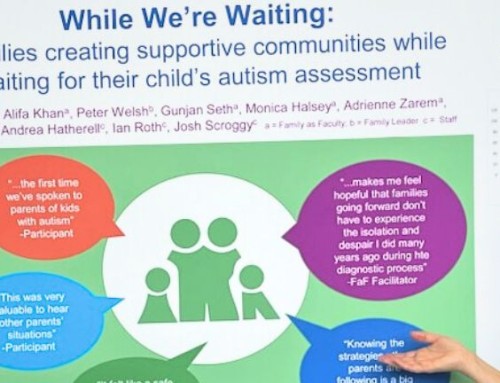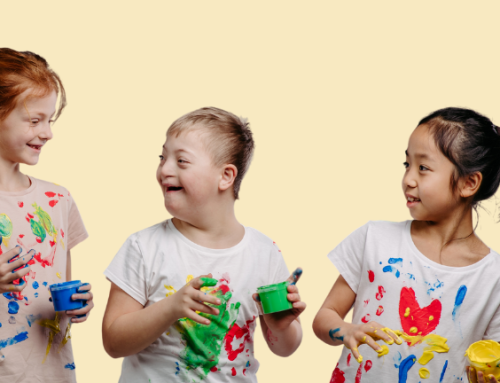For 10-year-old David, going to sleep was no easy task. According to his father Ben, David struggled with falling asleep and even when he managed to, he never woke up well rested.
Compounding the problem was that David was having a tough time in school. In November 2018, David underwent testing and was diagnosed with attention-deficit/hyperactivity disorder (ADHD). The psychologist who performed the test recommended participating in a study that was evaluating a new online health program called Better Nights, Better Days for Children with Neurodevelopmental Disorders (BNBD-NDD).
A team out of Dalhousie University led by child psychologist Dr. Penny Corkum originally created the program for neurotypical children. Dr. Corkum later teamed up with Dr. Shelly Weiss, a neurologist at the Hospital for Sick Children, and other Canadian sleep and neurodevelopmental disorder experts across the country, to modify the program to meet the needs of families and children living with neurodevelopmental disorders. This is how BNBD-NDD was born. Kids Brain Health Network recognized early on that most children living with neurodevelopmental disorders struggled with sleep and funded the development and evaluation of this program.
The goal of the program is simple: help children living with neurodevelopmental disorders sleep better. It is designed specifically for children between the ages of 4 to 12 years old who have been diagnosed with ADHD, cerebral palsy, autism spectrum disorder or fetal alcohol spectrum disorder. It is self-guided and delivered online in five modules, each targeting different aspects of sleep such as healthy sleep practices, settling to sleep and going back to sleep.
When the program was suggested to him, Ben says his family had reached a crisis point. His son’s inability to fall asleep or stay asleep affected most aspects of his life, including school where he struggled to focus and take in information. Desperate for support, Ben applied to be part of BNBD-NDD research study and started the online program in the summer of 2019.

Going into the program, I discussed with my son that this was a summer project we would work on together—it wasn’t just something for me or just something for him, it was for both of us,” says Ben. “It’s such a great program and so well structured for a kid with ADHD, and it gave us the opportunity to track progress and see everything we achieved together.”
Over the course of 10 weeks, the duo sat down together every night in their London, Ont. home and worked through the modules, with the goals of improving David’s quality of sleep and seeing an increase in his energy level during the day.
Like David, many children living with neurodevelopmental disorders—which primarily impair the growth and development of the brain and/or central nervous system—struggle with sleep. Research suggests more than 85 per cent of children with a brain-based disorder will struggle with falling asleep, staying asleep and achieving high quality sleep.
Dr. Corkum feels that sleep needs to be seen as a critical health behaviour, just like nutrition and exercise. The very name of the program was chosen as a reminder that sleeping better at night allows for better days.
“When a child isn’t sleeping, it can result in poor physical and mental health, as well as poor academic outcomes, not to mention the stress it adds to parents and caregivers who are already feeling overwhelmed,” says Dr. Weiss.
Dr. Weiss adds there are very few interventions which address sleep for kids living with a neurodevelopmental disorder. Prior to the pandemic, those that did exist were mostly offered in a face-to-face setting, making them difficult for some families to access due to time, childcare or geographic barriers.
This is why BNBD-NDD was created as an online health intervention—so it could eventually reach children and families across Canada. Parents work through five modules at their own pace and track their child’s progress using an online sleep diary. The team hopes the program will be available to anyone in the country within the year.
For both Ben and David who is now 12 years old, the program has been a game changer. It became evident just how helpful the program had been when the duo took a trip to Berlin in the fall of 2019. Over the course of a week the pair took eight flights and stayed in four hotels. If David’s sleep was going to regress, Ben figured this would be the time. But it didn’t at all—they arrived home on Saturday and David was well rested and back in school on Monday.
Ben says the pandemic has brought on new sleep challenges for David who struggled with the transition back to the classroom after a year of online learning, but they’re working through it using the skills they learned in BNBD-NDD.
“When your child is struggling you worry terribly, and you feel like you’re failing as a parent,” says Ben. “Better Nights, Better Days made a big difference in our lives and I’m a firm believer that this is a very helpful intervention.”
For more detailed information about the Better Nights, Better Days program, please click here.
Program Highlights
- To date, 250 parents have enrolled in the Better Nights, Better Days for Children with Neurodevelopmental Disorders randomized control trial which is almost complete.
- An implementation study will start in the new year which will help researchers determine the best way for families to access this program.
The goal is for Better Nights, Better Days for Children with Neurodevelopmental Disorders to be available to anyone across Canada in the next year.
Written by Vanessa Hrvatin








